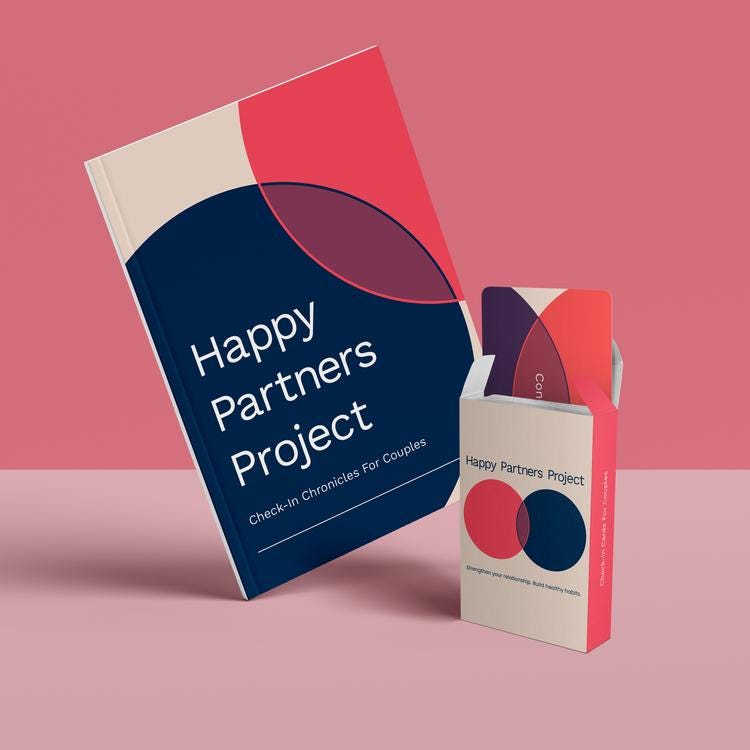
What Is a Relationship Check In!?
Share
What is a “relationship check-in”?

This is a question that gets asked a lot. And if you scour the internet, you’ll be met with a sea of murky explanations of what a check-in is and even less on how to do one (successfully!) with your partner.
It may sound intuitive but the nature of a relationship check-in isn’t so obvious.
Simply put — a relationship check-in is a structured time when couples can assess the status of their relationship.
With the Happy Partners Project “Relationship Check-In(TM) Method”, couples are guided through 5 categories of science and psych-backed prompts and activities designed to strengthen the couple’s bond. It also provides coaching tips and relationship best practices, earning it the title of “Couples Therapy in a box”!

A Relationship Check-In (TM) is also proactive instead of reactive.
Have you ever had one of those fights where a small infraction leads to a huge blow-out!?
That’s because most couples create a culture of checking in with each other when problems arise or when they are already deep in conflict.
At that point, the relationship requires a lot of TLC and repair to get back to bliss.
Regular check-ins, when held sacred, prevent these build-ups from happening catching upsets before they become enraged blow-outs, or worse — unexpected break-ups.
Relationship check-ins also train partners to be stronger in voicing both frustrations and appreciations as they arise and in a healthy manner.
We often hear that communication, trust and intimacy are the golden triad for healthy relationships. In one hour a week or every other, relationship check-ins will support partners in going for the gold.
This post is from the Happy Partners Project — a mission-driven e-commerce company designing and delivering products that support couples and individuals with building and sustaining healthy and blissful relationships.
Happy Partners Project is also the creator of the acclaimed “Relationship Check-In™ Method” — a science and psych-backed process for strengthening relationships.
The belief is that happier partners build happier homes and ultimately have healthier communication, greater life satisfaction and increased emotional intelligence.
For those couples who have children, we also believe that modeling healthy relationships will have legacy effects on the next generation of emotionally intelligent, well-adjusted humans.
